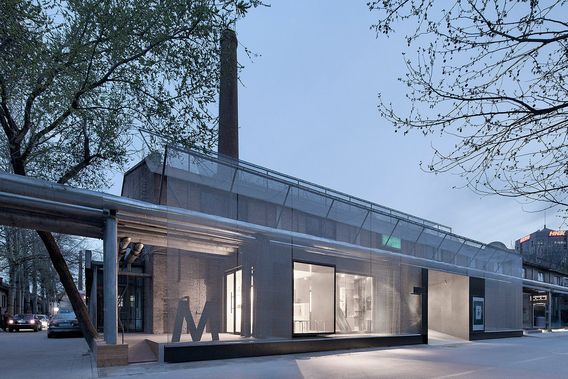
R
E
V N
E
X
T
M Woods And Other Chinese Museums Turn To Online Exhibitions Amid COVID-19 Outbreak
As cultural institutions in China remain closed as part of strict disease-control measures against the spread of COVID-19, several museums have announced the launch of virtual exhibitions to maintain public access to art.
In Beijing, one of more than 80 cities under partial lockdown, the M Woods Museum will open its online exhibition “Art Is Still Here: A Hypothetical Show for a Closed Museum” on February 13. According to the press release, the show considers how we can “experience art during times of institutional closure” and “the forms that art and art museums must take when galleries become inaccessible to the public.”
Curated by Victor Wang, the experimental exhibition will feature videos, photographs, texts, and virtual interventions by more than 40 artists and thinkers exploring themes of nature, extinction, isolation, and kinship. In the upcoming weeks, the museum will make exhibits virtually available to the public through its social media platforms including Weibo, WeChat, Instagram, and Facebook. Recognizing the importance of social media in China for “sharing information and connecting communities both locally and internationally during the quarantine period,” M Woods has not set an end date for the project and will continue to invite artists to participate. The exhibition lineup currently includes Turner prize winners Lawrence Abu Hamdan and Oscar Murillo, poet and artist Babi Badalov, and installation artist Haroon Mirza, as well as Chinese media artists Miao Ying, aaajiao, Cheng Ran, and Lu Yang.
Other cultural institutions are similarly turning to digital platforms following the temporary closures of their venues. Shanghai’s Power Station of Art—which already offers 360-degree panoramic views of their exhibitions along with online catalogues on WeChat—will publish a series of articles, as well as video lectures and educational sessions via WeChat. Tank Shanghai has uploaded videos in which artists and curators explain the works in the recent group exhibition “Convex/Concave: Belgian Contemporary Art.” The Shanghai Museum has uploaded digital resources for its exhibitions, including a display of paintings and calligraphy by Ming Dynasty scholar Dong Qichang, whereas Beijing’s Palace Museum has made its Chinese New Year presentation, “Celebrating the Spring Festival in the Forbidden City,” available online.
Ever since the first cases of COVID-19 were reported in Wuhan in December, more than 45,000 cases across 25 countries have been confirmed. The majority of cases have been centered in China, with the number of new cases standing at 44,653 and the death toll at 1,016 at time of writing.
Kylie Yeung is an editorial intern of ArtAsiaPacific. Additional reporting by ArtAsiaPacific’s assistant editor, Pamela Wong.
To read more of ArtAsiaPacific’s articles, visit our Digital Library.












